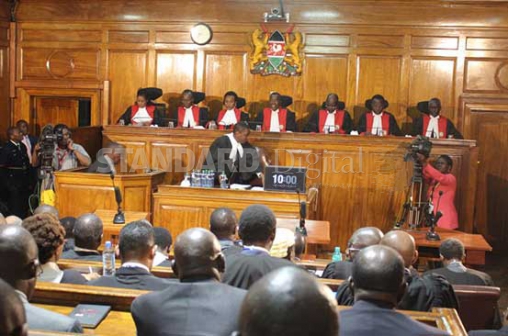×
The Standard e-Paper
Home To Bold Columnists

The Supreme Court deferred a ruling on whether it will allow the National Super Alliance to audit electoral materials to this morning as it allowed various parties to join the presidential election petition.
According to Chief Justice David Maraga, the application by NASA leaders Raila Odinga and Kalonzo Musyoka had many issues the judges need to consider and which they did not finish in time to deliver a ruling.